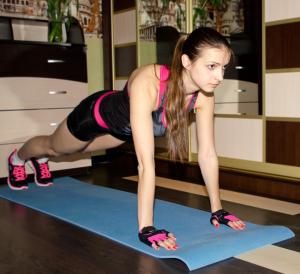 We’ve all heard that exercise keeps us young, but that’s often not enough to get us to start moving. We’ll look at one study that says yes, it’s true, and we’ll talk about reasons to exercise and how it keeps us from aging prematurely.
We’ve all heard that exercise keeps us young, but that’s often not enough to get us to start moving. We’ll look at one study that says yes, it’s true, and we’ll talk about reasons to exercise and how it keeps us from aging prematurely.
The study shows how exercise keeps us young at a cellular level and comes from WebMD:
Reviewed by Elizabeth Klodas, MD, FACC
Dec. 1, 2009 — People who exercise regularly tend to stay healthier as they age, and now new research may explain why at a cellular level. Compared to people who did not exercise, elite runners in the study had cells that looked much younger under a microscope.
Specifically, investigators measured the length of telomeres — the DNA on either end of thread-like chromosomes. Just as the plastic tips on the ends of shoelaces keep the laces from fraying, telomeres protect the chromosomes that carry genes during cell division. Each time a cell divides, telomeres get shorter. When telomeres get too short, cells can no longer divide and they die.
Researchers now believe telomere shortening is critical to aging, making people more vulnerable to diseases such as heart disease, diabetes, and cancer. “Telomeres can be thought of as a biological clock,” lead researcher Ulrich Laufs, MD, of Homburg, Germany’s Saarland University tells WebMD. “If they are shorter than a critical length, the process of programmed cell death starts.”
…In the human studies, middle-aged professional athletes who ran about 50 miles a week and had done so for many years had longer telomeres than healthy, age-matched non-athletes who did not exercise regularly. Not surprisingly, the athletes also had slower resting heart rates, lower blood pressures, and less body fat.
The study appears in the December 15 issue of the American Heart Association journal Circulation. “This is the first time it has been shown at the molecular level that exercising has an antiaging effect on the cardiovascular system,” Laufs says.
——————————————————————————————————-
Besides keeping telomeres long, what other anti-aging benefits does exercise have?
- When we exercise, we work our muscles, which keeps them healthy and prevents shrinkage and atrophy that commonly happens as we age. Muscles also help us burn more fat as we age, so it helps us keep our weight down.
- Exercise promotes better sleep, which helps our bodies repair and rejuvenate.
- Weight-bearing workouts increase bone mass, which prevents osteoporosis and falling in older people. One of the leading causes of nursing home admittance and death in the elderly is broken bones from falls, specifically broken hips.
- Daily exercise helps prevent diabetes, which can cause blindness, neuropathy, limb amputation, and death.
- Exercise improves circulation, giving us younger looking skin, lower blood pressure, less pain, and more energy.
What anti-aging effects have you noticed from exercise? Tell us below or on our Facebook page.





